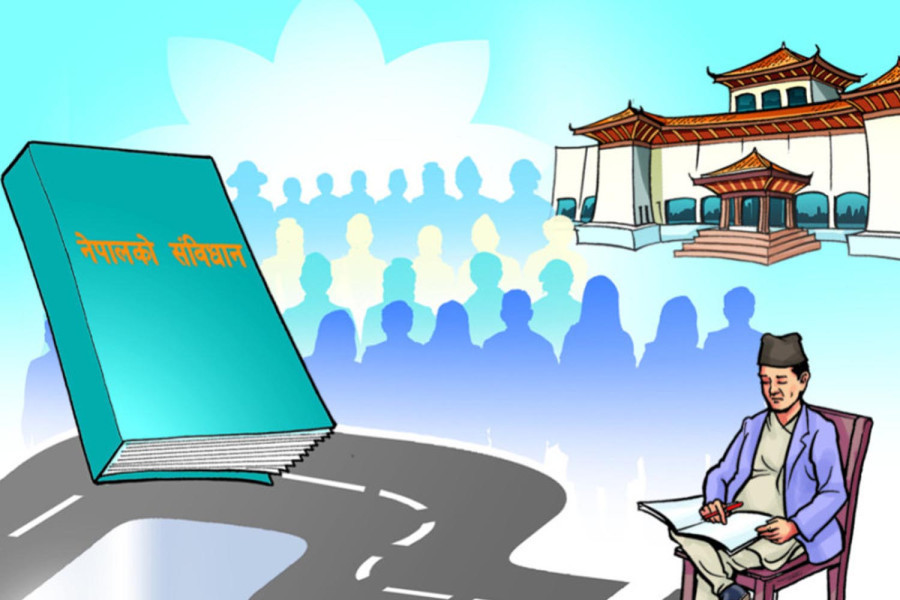Politics
Panel to track progress in lawmaking, identify pending laws for constitution’s full implementation
A previous study found that 40 laws need major amendments or replacement to align with constitution.
Post Report
Amid sluggish progress in law promulgation, the Legislation Management Committee of the National Assembly has decided to conduct a detailed study of the laws needed for the full-fledged implementation of the constitution promulgated around a decade ago.
The committee has formed a five-member sub-committee led by Beduram Bhusal, a CPN (Unified Socialist) lawmaker to assess the progress made in law promulgation and also find out how many laws, and from which sector, still need to be enacted. The sub-committee has been given a month for the study and submit a report.
The committee, after a similar study last year, had found that only 111 laws among the 151 required to implement the 2015 constitution had been enacted by July 2023. It had pointed out that 40 Acts needed either major amendments or replacement to bring them in sync with the constitution.
Appearing before the upper house, then prime minister, Pushpa Kamal Dahal, had said the government was serious towards drafting the necessary bills and registering them in the federal parliament. But his government failed to walk the talk. The incumbent government too has not made serious attempts to introduce these necessary bills.
“The sub-committee will study what progress has been made since last year,” said Tulasa Kumari Dahal, chairperson of the House committee. “It will study minutely as to which ministry needs which laws to implement the constitution.”
Once the Bhusal-led panel submits its report, the House committee will hold discussion with the prime minister and relevant ministers. “We will try to seek explanations for the delay and instruct the government to expedite the preparations of the necessary bills,” she said.
The constitution had set two deadlines to prepare laws for its implementation. It mandated the passage of laws related to fundamental rights within three years of the charter’s promulgation. The federal parliament endorsed the bills related to 31 fundamental rights a day before the constitutional deadline of September 19, 2018.
As per the statute, the Acts that contradict the constitution must have been revised within a year since the first meeting of the federal parliament on March 5, 2018. Though several laws were enacted, dozens are still waiting for parliamentary approval.
One major constitutional mandate involves devolving authority to manage school education from the federal government to local governments. However, the federal education law has yet to be enacted. Similarly, the federal civil service bill is also stuck in a parliamentary committee.
Other crucial laws, including those related to health, citizenship and the authority of the President and Vice President have also not been enacted.
The report says some of the laws in force date back as far back as 1953. Similarly, dozens of Acts are from the Panchayat era (1961-1990). For instance, the Education Act from 1972 and Infectious Disease Act from 1962 remain in force.
In its report, the House committee had instructed the government to revise the Panchayat era laws to align with the present day needs. However, little progress has been made in this regard.
It is the government that prepares bills and registers them in parliament. They become the Act, only after they get through both the Houses of the federal parliament and receive the Presidential seal.
The government, however, solely is not responsible for the delay in having the necessary laws in place. Failure of the House committees in readying the bills to be tabled for the endorsement too is equally responsible for the delay. For instance, different House committees are sitting on 16 bills for months. Despite repetitive instructions from Speaker Devraj Ghimire, the House panels also called mini-parliaments have not been active.
The upcoming winter session of the House, known as bills session, is likely to be without substantial business because neither the House committees have finalized the pending bills nor has the government registered new bills. It has been more than four months since the last bill was registered.




 8.79°C Kathmandu
8.79°C Kathmandu













